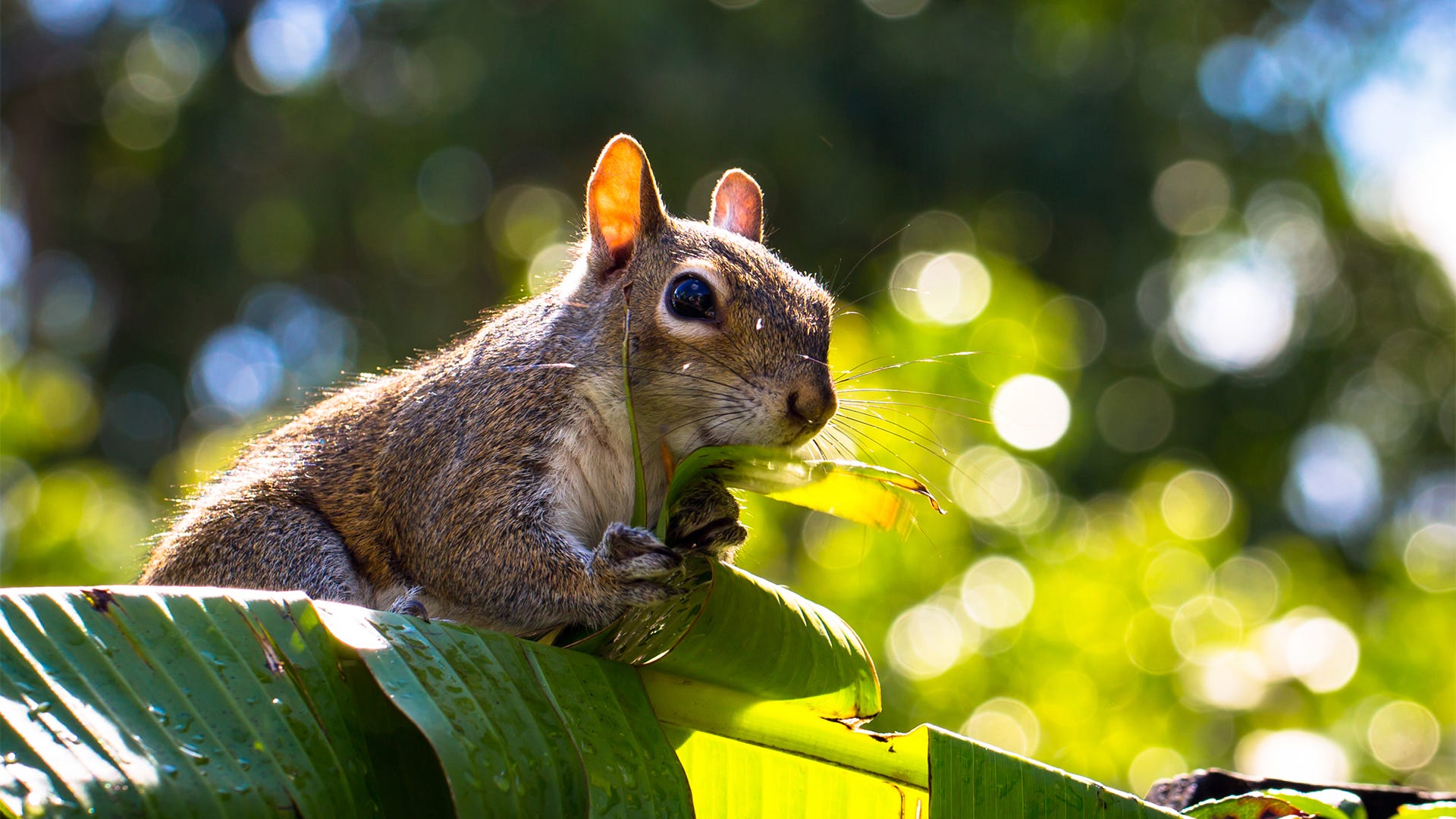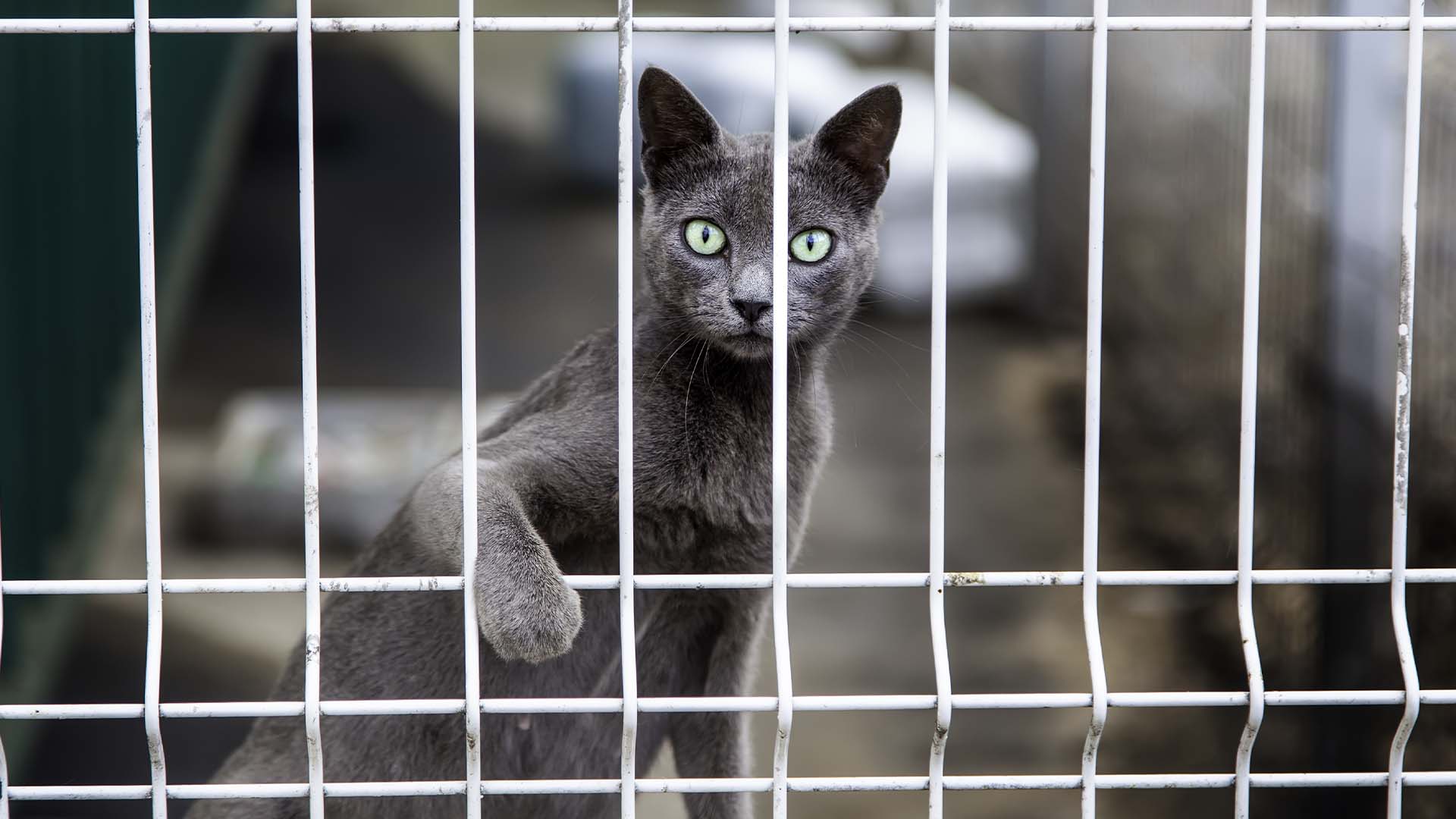Wondering how to keep squirrels out of your garden, yard or home? From spring through winter, any time of year is open season for squirrel problems. In spring and summer, squirrels can destroy a garden in a matter of days. Squirrels are known for eating fruit off your trees, seeds in the garden beds, flower buds that are just starting to show, and even bark from a tree. They’ll dig up your bulbs that were carefully planted during the winter, raid the bird feeders, and can cause extensive damage to your lawn by digging and burying their forages for their winter storage. They’re even known to chew hoses and any plastic netting you’ve installed.
If squirrels have invaded your yard or home you should take action to remove them and deter them from returning. The varieties of products that can be used to deter squirrels are plentiful. The key is finding the right product for your garden and yard.
Homemade Products
There are a number of recipes online for homemade squirrel repellents. Most of these are natural and non-toxic, and are sought by those like our Wild Neighborhood Community because we don’t want to harm wildlife. The cost to prepare the recipe will range between $5 and $20 depending on how many of the ingredients you have on hand. The drawbacks of home-prepared recipes are the time, and potential lack of results. Preparation takes 20-25 minutes to cook the recipe, and then it must cool, and finally be strained through a fine mesh strainer or cheesecloth before it can be used. Because the quality of the ingredients plays a large role in the potency of the final product, the better quality (and higher priced) your ingredients and tools (spray bottle) are, the better the repellent will be, and easier the application.
Exclusion
- Plastic Netting - One option is a physical barrier that is difficult for a squirrel to navigate. Plastic netting is one suggestion. While plastic netting will slow the squirrels down, in the end it will prove useless as squirrels will simply eat through these. Plastic netting ranges in price from $5 to $45 depending on quality and quantity desired. Obviously, the higher quality netting will take longer to chew through, but it’s also tricky to install, an eyesore on a garden, and a frustration if it doesn’t yield the results you are looking for.
- Wire Mesh Fencing - Another method is to enclose your garden using a C Fence. Install it in a C formation with a foot of the fencing going into your yard at the bottom. At the top of the fencing you need to make it arch enough that if the animals try to climb the fence they’ll simply end up dropping to the ground. This method is effective however takes time to set it up properly. Depending on what type of fencing you use, this method is relatively inexpensive using mesh fencing ranging from $10-30 depending on the size of your garden.
- Electric Garden Fencing - One solution that gardeners may want to consider is an electric garden fence. This type of fencing will give you a lifetime of relief from squirrels and all the other “critters” that enter your yard. This method involves more of a cost investment with prices ranging from $40 to $150 depending on the complexity of the system, however it is an effective method for protecting the fruits of your labor. Electric fencing can be a total solution for all your safety and repellent needs.
Animal Repellents
The most time efficient and inexpensive method is to use animal repellents that help deter them from getting close to your garden. These two methods are humane and will not cause harm to your family, pets or wildlife. Animal repellents can vary from $12 to $30 in pricing and can come in either a granular product or a liquid repellent. For the most desired results, use an animal repellent specific for deterring squirrels. A quality repellent will deter squirrels by taste, scent and touch.
There are also electronic repellents that use a burst of water to deter squirrels. The burst of water is used in conjunction with a noise and a motion to scare away unwanted animals. As far as pricing goes, electronic repellents are higher-priced, ranging from $70 to $350. However, this method is ideal for gardeners that do not want to use chemical repellents and do not want to cause any harm to the squirrel. This deterrent method also allows you to keep your garden and yard safe without disrupting the visual esthetics of your hard work.
Live Animal Traps for Removal
One solution for relocating squirrels away from your property is humane squirrel traps. These traps are easy to use, however removal and relocation of the squirrel can be tricky. Live animal traps range from $30 to $80 depending on the type of trap you may need. These traps are reusable, so this is a one-time expense, and can continue to serve you for years if your squirrel problems persist or return.
Depending on your state of residency, laws on removing and relocating squirrels differ. Most states require that the squirrel either be considered a nuisance or is causing property damage to justify removal and relocation. The squirrel must not be on the endangered species list or on the state’s watched animals list – these can be found on either the national wildlife or state website, under the wildlife nuisances tab, if one exists.
In some instances, a permit may be required to remove and relocate the squirrel from your property. This is a simple process and requires you to fill out an application and submit it to your local conservation office. If your claim is justified, you will then be able to remove the animal from your property and relocate it according to your county’s specifications. To gather more information on your state’s wildlife conservation laws, locate and call your state’s Department of Conservation or Department of Wildlife and Game Commission, http://www.fws.gov/offices/statelinks.html.
Extermination
Using a local professional who specializes in pest extermination is the fastest option, but is also the most expensive and is not humane. Because squirrels are classified as a rodent, like mice and rats, pest control professionals simply exterminate these creatures, instead of taking the time to trap and relocate them.
Removal of the exterminated animals is not usually included in the service. So, while they have the proper equipment to effectively eliminate the squirrels and understand how to protect themselves from problems the squirrels present, they don’t practice humanitarianism – something that is very important here in the Wild Neighborhood, and the reason behind all of the Havahart® brand’s live animal traps and natural animal repellents.
Prevention is Best
It is important to prevent unwanted squirrels from entering your home or garden before they become a problem. Here is the list of options, from most convenient and inexpensive to least:
Don’t let your garden become the new feeding place for squirrels this season. Determine the correct type of deterrent for your yard or garden to ensure that you and your family are the only ones enjoying your fresh garden ingredients by using a squirrel deterrent method.
- Squirrel Repellents: Use squirrel repellent around your property. This will ensure that squirrels do not accidentally fall in your chimney or burrow into foundation flaws in your home. This will prevent damage to your home and the hassle of getting the little creature out of your house.
- Physical Barriers: If you are just beginning to cultivate your garden, consider placing electronic repellents or a physical barrier around your garden to ensure that your hard work is not in vain and you are the only one enjoying the fruits of your labor.
- Trapping and Removal: While this could become a little more time consuming depending on how much research you do, and your state’s requirements, it may result in the most permanent solution to your squirrel problem, should you ever get one, or should your squirrels return.




